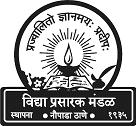 |
|
||||||||||||||
|
|
|||||||||||||||
|
||||||||||||||||||||
An Academy Connection
to China's Tainted Milk?
December 02, 2008
The recent tainted baby formula scandal in China has focused public attention
on the high-tech adulteration of milk with the industrial chemical melamine
(Science, 28 November, p. 310). The compound, used primarily as a fire retardant
and plastic stabilizer, can fool a traditional test for protein content to make
livestock feed appear to contain more protein than it actually does. Some Chinese
bloggers have found that researchers affiliated with the Chinese Academy of
Sciences ran advertisements for technologyâ ”making high-protein
feed from "organic nitrogen"â ”that might have a connection
to melamine.
Like U.S. regulators, China's agriculture ministry allows certain non-protein nitrogen (NPN) additives, such as biuret and urea, in ruminant feed. But melamine was not allowed as a feed additive in the United States. In China, NPN additives with unspecified ingredients, marketed under the name dan bai jing (protein essence), have been added to feed for all animals, not just cattle. According to Chinese news reports, melamine scrapâ ”a nitrogen-rich byproduct of manufacturing the industrial chemicalâ ”has become the additive of choice during the past several years.
Chinese bloggers recently discovered that in 1999, a researcher with a now-defunct institute of the Academy advertised a technology for "DH synthesis of a high-protein feed additive." Last year, another ad by the Academy's Old Technical Experts Center, an organization for retired researchers, promoted "DH dan bai jing" developed by the center for use in shrimp, fish, chickens, pigs, as well as cows and sheep. Some bloggers question whether the advertised technology might have been connected to the adulteration of milk with melamine. After a 2-day internal investigation in late October, the Academy absolved itself of any link to the melamine scandal. But its spokesperson did not explain what is in the additive, which the ads claimed contain "160% to 200% crude protein." Academy officials did not respond to repeated telephone and email requests for comment.
In the wake of the scandal, the Chinese government is trying to eliminate melamine from the food chain. However, advertisements of a new kind of dan bai jing have popped up online. One company in Shandong guarantees "absolutely no melamine" in its dan bai jing, which it advertises as containing isobutylidene diurea, a lawn fertilizer. Some experts find this development troubling. "Isobutylidene diurea is not approved â ¦ for use in animal feed" in the U.S., says Laura Alvey, a spokesperson for the U.S. Food and Drug Administration. But the fertilizer is on Chinese agriculture ministryâ ™s list of allowed NPN additives for ruminant animals. Food for thought, at least, for Chinese and U.S. regulators, who will be interacting more closely now that the FDA has opened new offices in China.
â ”Hao Xin